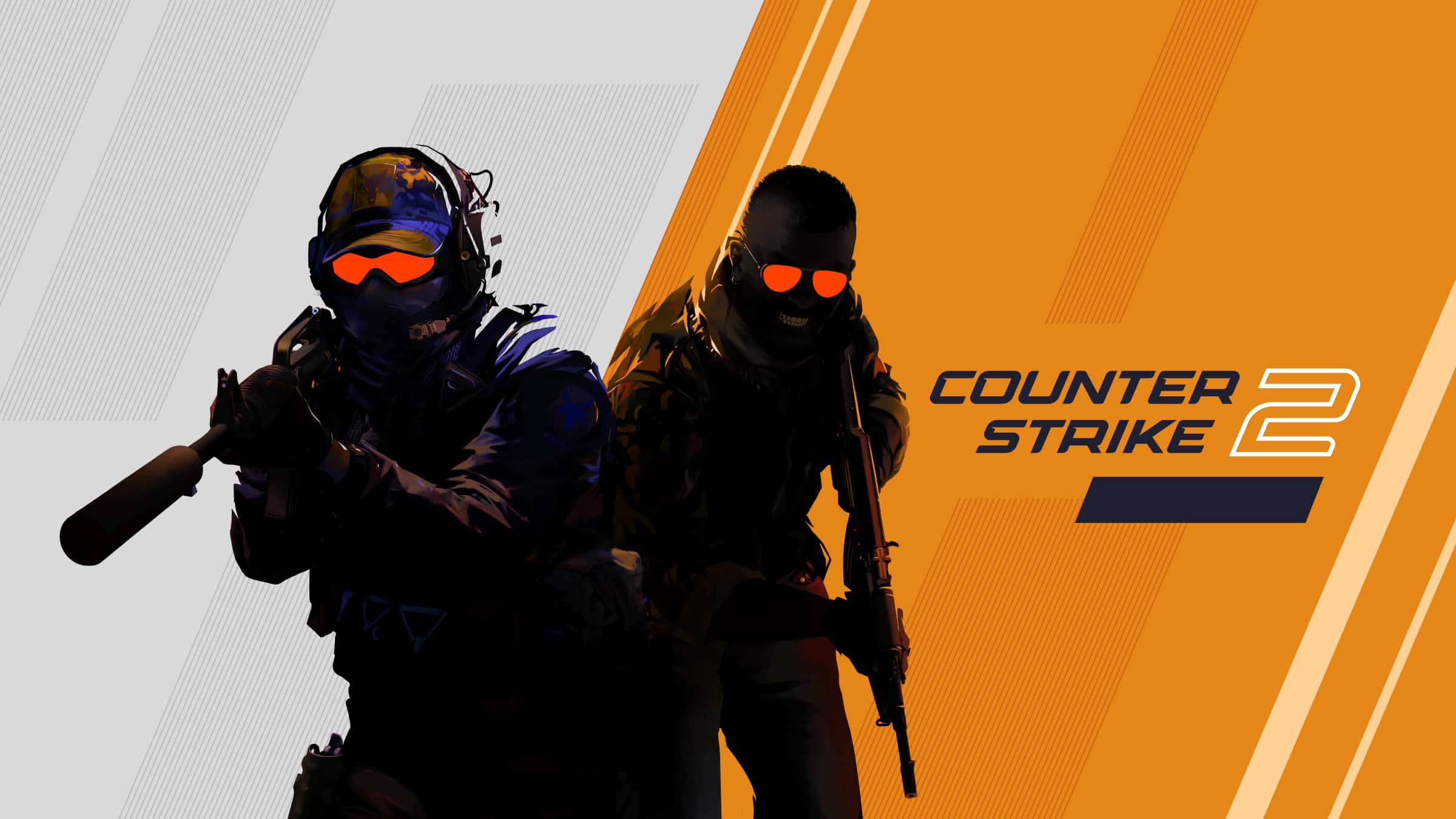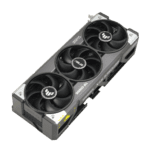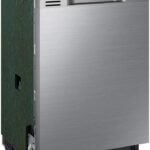Counter-Strike 2, like its predecessor, employs a comprehensive strategy to combat cheating. It combines both existing and enhanced systems to promote fair play and uphold competitive integrity. Since its release, Counter-Strike 2 has remained dedicated to addressing the ongoing issue of cheating in online multiplayer games. Its anti-cheat system uses robust measures to ensure a level playing field.
Below is a summary of its key components:
Combating Cheaters: A Look at Counter-Strike 2’s Anti-Cheat System
VAC (Valve Anti-Cheat)
- The Foundation: VAC remains a core component of CS2’s anti-cheat system. It scans for known cheats and modifications that violate the game’s rules.
- Delayed Bans: VAC often uses delayed bans to avoid revealing its detection methods to cheat developers. This means cheaters might not be banned immediately but will eventually face consequences.
VACnet
- AI-Powered Detection: VACnet is an AI-powered machine learning system that analyzes player behavior and in-game data to identify suspicious patterns that might indicate cheating.
- Continuous Learning: VACnet continuously learns and adapts to new cheating techniques, making it more effective over time.
Server-Side Checks
- Real-Time Monitoring: CS2 servers perform real-time checks to detect anomalies and suspicious activity that might suggest cheating.
- Anomaly Detection: This includes things like impossible movements, aim assistance, or wallhacks.
Community Reporting
- Player Input: Players can report suspicious behavior through the in-game reporting system.
- Review and Action: Reported players are reviewed, and appropriate action is taken if cheating is confirmed.
Improvements in CS2
While the specific details are kept under wraps to avoid giving cheaters an advantage, Valve has indicated that CS2’s anti-cheat system includes improvements over CS:GO’s system. This likely involves:
- Enhanced Detection: Better detection of subtle cheats and sophisticated hacks.
- Faster Response Times: Quicker identification and banning of cheaters.
- Increased Security Measures: Steps to prevent cheats from being developed and distributed in the first place.
The Ongoing Battle
The fight against cheating in online games is an ongoing battle. Cheat developers continually try to find new ways to circumvent anti-cheat measures. Valve is constantly working to improve its systems and stay ahead of cheaters.
The Impact of Cheating
Cheating ruins the gaming experience for legitimate players. It creates an unfair playing field and diminishes the sense of accomplishment. Effective anti-cheat systems are crucial for maintaining a healthy and competitive gaming environment.
Beyond Anti-Cheat: Promoting Fair Play
While robust anti-cheat systems are essential, fostering a culture of fair play within the community is also important. This includes:
- Education: Raising awareness about the negative impact of cheating.
- Positive Reinforcement: Recognizing and rewarding players who exhibit good sportsmanship.
- Community Involvement: Encouraging players to report suspicious behavior.
By combining strong anti-cheat measures with a community-driven approach, Counter-Strike 2 aims to provide a fair and enjoyable experience for all players.
Counter-Strike 2: Combatting Cheaters with Advanced Anti-Cheat
Proactive Measures
- VACnet Upgrade: The core of Counter-Strike’s anti-cheat, VACnet, leverages deep learning to analyze player behavior and detect anomalies. The CS2 update has enhanced VACnet’s pattern recognition, making it more effective in identifying subtle cheating techniques.
- Intrusive Kernel-Level Access: Unlike some anti-cheat systems, Counter-Strike 2 operates with kernel-level permissions. This allows deeper monitoring of system processes for unauthorized software that gives unfair advantages.
Reactive Measures
- Overwatch System 2.0: This community-driven feature allows experienced, trusted players to review gameplay footage of reported players. Upgrades in CS2 allow for more detailed feedback and greater impact of Overwatch decisions.
- Faster Ban Waves: Counter-Strike 2 focuses on less frequent but larger ban waves to effectively disrupt cheat developers before they can adapt their tools.
Beyond Detection: Prevention and Deterrence
- Trust Factor 2.0: This system analyzes player behavior beyond in-game actions, considering reports, commends, and playtime. A good Trust Factor provides matchmaking benefits, discouraging cheaters by making their matches harder.
- Prime Matchmaking Restriction: Prime Status, previously tied to phone number verification, now requires a more in-depth account history. This raises the barrier to entry for cheaters seeking fresh accounts.
Anti-Cheat Challenges and Limitations
Counter-Strike’s anti-cheat battle is never-ending. Here are some challenges faced:
| Challenge | Description |
|---|---|
| Evolving Cheats | Cheat developers find new vulnerabilities and techniques. Anti-cheat systems must constantly adapt. |
| False Positives | While rare, aggressive systems sometimes flag legitimate players. This requires ongoing fine-tuning. |
| Privacy Concerns | Kernel-level access raises some privacy concerns about how user data is handled. |
Anti-Cheat Effectiveness: An Ongoing Assessment
It’s difficult to measure anti-cheat success definitively. Here’s what we can consider:
| Metric | Description |
|---|---|
| Player Feedback | Community perception on the prevalence of cheating provides a valuable, if subjective, measure. |
| Cheat Provider Activity | Disruptions to major cheat providers indicate anti-cheat measures are having an impact. |
| Professional Integrity | Maintaining a clean competitive scene boosts confidence in the anti-cheat system. |
Counter-Strike 2’s anti-cheat approach demonstrates a dedication to fair play. Players can help by utilizing reporting tools and maintaining vigilance for suspicious behavior.
Counter-Strike 2’s Engine
Counter-Strike 2 is built on Valve’s Source 2 engine, a major upgrade from the original Source engine that powered Counter-Strike: Global Offensive. This new engine allows for improved graphics, physics, and overall performance, bringing the game into a new era of visual fidelity and gameplay responsiveness.
Counter-Strike 2 Anti-Cheat Overview
With the advent of Counter-Strike 2 (CS2), Valve has introduced a stronger stance against cheating with the implementation of improved anti-cheat systems. This response focuses on the enhancements these systems offer.
Introduction to VAC Live
Counter-Strike 2 (CS2) marks a significant shift in Valve’s approach to anti-cheat with the debut of VAC Live. Unveiled alongside the CS2 announcement, this feature represents a proactive solution designed to operate in real-time on official servers. It’s powered by a form of artificial intelligence (AI) which continuously scans for irregular gameplay patterns to detect cheats as they are being used.
Evolution from CS to CS2
Transitioning from Counter-Strike: Global Offensive (CS) to CS2, Valve has made concerted efforts to evolve their anti-cheat methods. CS’s VAC system laid the groundwork, but faced criticism over its effectiveness. CS2 introduces upgraded features to counteract cheating, exhibiting Valve’s commitment to fair play. This evolution showcases the developer’s ongoing battle against in-game cheaters and their dedication to providing a cleaner gaming environment.
Implementing Anti-Cheat Measures
Valve’s Counter-Strike 2 is enhancing game integrity with robust anti-cheat systems. This includes real-time monitoring and stringent measures during beta to stop cheaters in their tracks.
Beta Testing and Community Feedback
Counter-Strike 2’s beta phase serves a critical role in fine-tuning anti-cheat mechanisms. Players testing the game provide valuable feedback on the system’s effectiveness. Reports of cheating during these limited tests are important for Valve. They help the company adjust and improve tools to prevent unfair play.
Collaboration with Third-Party Services
Third-party services such as FACEIT and ESEA have long been involved in maintaining fair play standards. Valve’s plan could involve cooperation with such services, considering their experience in combating cheaters. Other games, like those protected by Riot’s Vanguard, have benefited from such collaborations. Integration with Steam and potentially other anti-cheat software might also be on the agenda, ensuring a wide net to catch and deter cheats.
Combating Cheaters in CS2
Cheating has been a persistent issue in online gaming, but Valve’s approach in Counter-Strike 2 (CS2) showcases their commitment to maintain fair play through advanced anti-cheat measures and strict consequences for violators.
Cutting-Edge Anti-Cheat Technologies
Valve has equipped CS2 with state-of-the-art anti-cheat technologies. Their system, known as VAClive, is designed to detect and respond to cheating in real time. The system constantly evolves, learning how cheaters operate on different maps and adjusting its detection methods accordingly. Valve’s proactive stance means the game can often preempt potential cheaters by analyzing abnormal behaviors and using data from countless games to improve cheat detection.
- Real-time Detection: VAClive identifies and intercepts cheaters as they play.
- Learning Algorithm: The anti-cheat system adapts by gathering data across games.
- Source 2 Engine: Offers enhanced capabilities for anti-cheat features.
Consequences for Violations
When a player is caught cheating, the consequences are swift and significant. Valve has made it clear that they are dedicated to punishing those who break the rules. Being banned from Steam and losing access to CS2 is just the tip of the iceberg for violators. These bans can be handed down quickly after cheating is detected, showcasing Valve’s serious stance on the issue.
- Immediate Bans: Quick action is taken against identified cheaters.
- Steam Account Impact: Violators risk losing their entire game library.
- Deterrent Effect: Stricter penalties are meant to discourage potential cheaters.
Valve’s relentless pursuit of a cheater-free environment in CS2 is critical for the game’s integrity. By utilizing advanced technologies and imposing harsh consequences, they aim to provide a fair and competitive experience for all players.
Frequently Asked Questions
Counter-Strike 2 has introduced a revamped anti-cheat system to ensure fair gameplay. Here’s a quick rundown of common questions you might have.
How can I fix the issue if the anti-cheat system in Counter Strike 2 is not working properly?
If the anti-cheat system in CS2 malfunctions, try verifying your game files through the game’s launcher. This process checks for corrupted or missing files and typically resolves issues.
Are there prevalent cheating issues being reported by players in Counter Strike 2?
Reports from the community highlight some instances of cheating in CS2. However, the new anti-cheat system is designed to curb these practices effectively.
What are the new features of the anti-cheat system in Counter Strike 2 compared to previous versions?
CS2’s anti-cheat has improved detection methods, including signature-based scanning for known cheats and heuristic techniques to uncover unknown exploits.
How does Valve’s anti-cheat system integrate with Counter Strike 2 to enhance game integrity?
Valve’s anti-cheat system, VAC, works hand in hand with CS2 by continuously monitoring the gaming environment. It flags and bans players who use unauthorized software.
What steps should I take if I receive a ‘game files’ error from the anti-cheat system while playing Counter Strike 2?
Receiving a ‘game files’ error message suggests that some files might be missing or altered. Reinstalling the game completely can often fix this problem.
How effective is the anti-cheat mechanism in detecting and preventing the use of aimbots in Counter Strike 2?
The anti-cheat in CS2 is increasingly effective at detecting aimbots. It uses a combination of behavioral analysis and pattern recognition to flag potential cheats.







